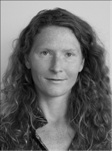Contact
Hanna Schösler’s main research interests concern the question of how food sustainability may be understood from a socio-cultural perspective. Whereas food sustainability is currently often understood within an environmental context and in economic terms, the cultural dimension of it is frequently underestimated. An overall healthy diet and foods free of pesticides and with a low carbon footprint are not the only endangered concepts that should be sustained. It is also the personal relations that food creates, the competences and capacities of food as well as the pleasure, mindfulness, and connectedness with nature and animals that stand for a meaningful engagement with our (natural) environment, a sense of heritage, history, and cultural diversity.
Schösler studies food trends such as vegetarianism, organic consumption and Slow Food as well as influences from migrant cultures. She employs qualitative and interpretive methods as well as quantitative surveying. Different theories of human values and value change are combined with motivational theories such as Self-Determination Theory (SDT) in order to investigate potential for behavioral change and the potential to (partially) shift to a diet that is less reliant on animal protein.
Schösler is pursuing a PhD at the Institute for Environmental Studies, where she is a member of the Cluster of Science and Values. She holds a MA in linguistics from the University of Amsterdam and a MS in environmental resource management from VU Amsterdam. In 2008 Schösler was a visiting fellow at the University of Copenhagen’s Institute of Food and Resource Economics and currently is a RCC visiting fellow.


